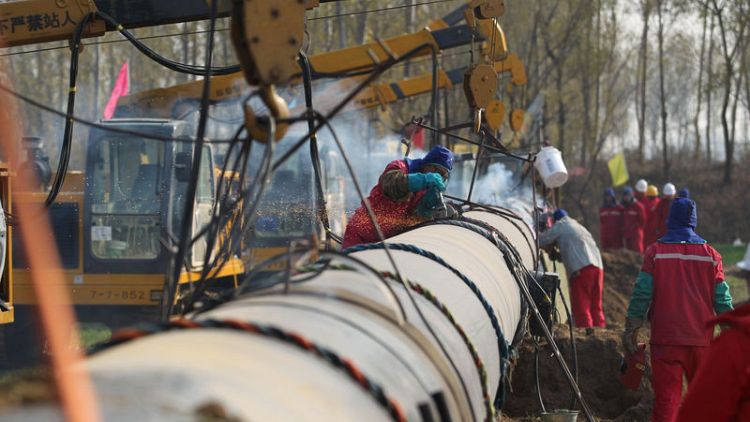By Chen Aizhu
SINGAPORE (Reuters) - China National Petroleum Corp (CNPC) has suspended investment in Iran's South Pars natural gas project in response to U.S. pressure and to minimize tensions amid trade talks between Beijing and Washington, three Chinese state oil executives said.
South Pars is the world's largest gas field and CNPC's investment freeze is a blow to Tehran's efforts to maintain financing for energy projects amid the re-imposition U.S. sanctions on its energy sector earlier this year.
Iran said on Nov. 25 that CNPC replaced Total as the operator of Phase 11 project at South Pars after the French company ended its participation rather than violate the sanctions.
The investment halt followed four rounds of talks in Beijing, including one as recently as October, with senior U.S. officials who urged CNPC to refrain from injecting fresh financing in Iran, said one of the sources, an executive with direct knowledge of the matter.
It was not clear if the Chinese government gave direct orders for the halt, but the sources said it is politically sensible amid the trade negotiations between China and the United States.
"China sees the relationship with the U.S. as paramount over anything else. As a state-owned entity CNPC will stay clear of bringing any unwanted trouble into this relationship as the U.S. China trade talks are under way," said a second source, an official familiar with CNPC's global strategy.
The sources requested anonymity as they are not authorized to speak to the media.
Total was the first global energy firm to return to Iran after earlier sanctions were lifted after the U.S., Russia, China, France, Germany, Britain, the European Union and Iran agreed to a pact limiting the Islamic Republic's nuclear programme in late 2015.
The U.S. quit the pact in May and re-imposed sanctions because it did not curb Iran's ballistic missile programme and to pressure the country to stop supporting proxies in Syria, Lebanon, Iraq and Yemen.
The first source said that Iran has 120 days to review CNPC's role in South Pars and decide whether to keep the Chinese firm as a dormant investor or cancel the deal.
CNPC did not respond to three requests for comment. Two Iranian oil ministry officials contacted by Reuters declined to comment.
While agreeing to halt its South Pars participation, CNPC did convince the U.S. that it needed to continue investing in the North Azadegan and Masjid-i-Suleiman (MIS) oilfields to recoup the billions of dollars spent under buy-back contracts signed years ago, said the first source and a third separate official with knowledge of CNPC's oil activities.
Without CNPC providing sub-contracting engineering work and supplying production equipments, the Iranian side will have difficulty maintaining the oil output, the sources said.
North Azadegan, in southwestern Khuzestan province, is estimated to be pumping close to 80,000 barrels per day of crude oil after production started in 2016, according to CNPC's website.
(Reporting by Chen Aizhu in Singapore; Additional reporting by Parisa Hafezi in Ankara; Editing by Christian Schmollinger)
